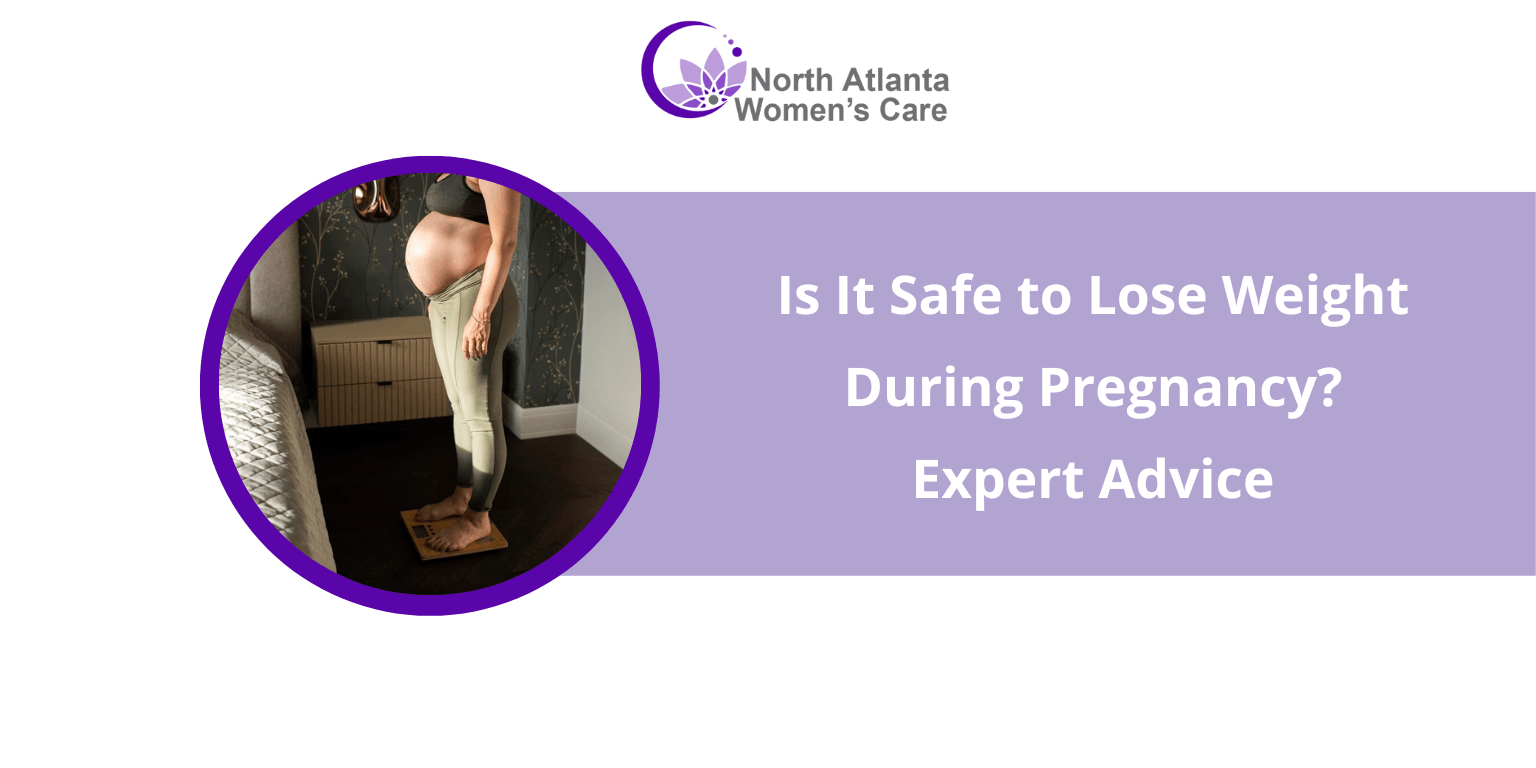Is It Safe to Lose Weight During Pregnancy? Expert Advice.

Weight gain and pregnancy are closely linked. A healthy weight gain during pregnancy positively impacts you and your baby's long-term health. However, gaining excess weight can cause pregnancy complications, including pre-eclampsia, gestational diabetes, obstructive sleep apnea, and cesarean delivery. Similarly, losing weight during pregnancy is not recommended as it may pose problems for both mother and child.
This blog discusses whether it is safe to lose weight during pregnancy and the risks involved. It also provides diet and exercise-related tips that can help you maintain a healthy weight during your pregnancy.
How Much Weight is Recommended During Pregnancy?
Weight gain is normal and healthy during pregnancy. Most of the weight comes from the growing fetus and the fat your body stores for breast milk post-childbirth. According to the American College of Obstetrics and Gynecologists (ACOG), the recommended weight gain is 11-40 pounds, but it depends on your pre-pregnancy body mass index (BMI).
The recommended weight gain stipulated by the Institute of Medicine(IOM) is as follows:
- Women with normal weight (BMI < 18.5): 25-25 lbs
- Underweight women (BMI 18.5-24.9): 28-40 lbs
- Overweight women (BMI 25-29.9): 15-25 lbs
- Obese women (BMI>30): 11-20 lbs
Is It Okay to Lose Weight While Pregnant?
Intentional or dramatic weight loss may not be the best thing to do while pregnant. While weight fluctuations may occur in the initial stage of your pregnancy while your body adapts to the several changes it undergoes, trying to lose weight intentionally by dieting, reducing calorie intake, or limiting your food choices as your pregnancy advances is not advisable.
Regardless of your pre-pregnancy weight, weight loss is not a safe option for pregnant women. Your body works overtime during pregnancy, so missing out on vital nutrients that your body needs can negatively affect the mother's and fetal health. A study found that women who intentionally lost weight during pregnancy had higher risks of preterm births and smaller babies.
Is Losing Weight in the First Trimester or Early Pregnancy Okay?
Losing weight in the first trimester or the first three months of pregnancy is the only time in your pregnancy when it may be okay. The main reasons for weight loss during first trimester include:
- Morning sickness: 70% of women have morning sickness, during which they experience nausea and vomiting. While nausea reduces your appetite, vomiting results in calorie loss. However, you must consult your physician if you suffer from severe morning sickness (hyperemesis gravidarum).
- Healthy lifestyle: To enjoy a healthy pregnancy, you may adopt healthy lifestyle habits that may cause mild weight loss.
What Are the Risks of Losing Weight During Pregnancy?
Intentionally following diet plans while pregnant to lose weight can pose several risks for both the mother and the baby, such as:
- Nutritional deficiencies
- Increased tiredness
- Developmental delays
- Preterm birth
- Small fetus
Helpful Diet and Exercise Tips to Maintain a Healthy Weight During Pregnancy
Managing weight can be a cause for concern during pregnancy. While purposefully losing weight may not be a safe option, you can maintain a healthy weight by eating a balanced diet and exercising regularly.
Tips for a Healthy Diet
To ensure that you receive all the vital nutrients that your body needs during pregnancy that allow you to function optimally and enable proper fetal development, you must consider the following tips:
- Eat balanced meals with all the important vitamins and minerals needed to support a growing baby inside you. Your meals must include:
- Whole grains such as wheat, oats, quinoa, and brown rice for fiber and vitamins
- Lots of vegetables, especially dark leafy greens that are rich in fiber, vitamins C, K, and A, iron, folate, and potassium
- Plenty of fruits for fiber, folate, vitamins A, B6, and C, potassium, and folic acid
- Dairy products for calcium and protein
- Fresh lean meats like chicken, beef, and pork for iron
- Seafood like salmon for omega-3 healthy fats
- Legumes like lentils, peas, chickpeas, and beans for calcium, fiber, protein, iron, and folate
- Berries and nuts for antioxidants
- Choose healthy snacks such as carrots with hummus, Greek yogurt with fruit, veggies with guacamole, and whole-grain crackers with peanut butter
- Do not skip meals or take very long intervals between meals
- Have fruits for natural sugar in place of processed products
- Drink about 8-10 ounce cups of water every day
Exercise Tips While Pregnant
While exercising regularly during pregnancy is recommended for easier labor and faster postpartum recovery, you must ensure that you are doing them the right way and the exercises are pregnancy-safe. Exercises that offer the most benefits for pregnant women include:
- Walking
- Yoga
- Pilates
- Swimming
- Light jogging
- Low-impact aerobic exercise
- Stationary bike riding
- Strength training
Get the Best Pregnancy Care in and Around Suwanee/Johns Creek, GA, at North Atlanta Women’s Care
The team of board-certified gynecologic and obstetric physicians at the North Atlanta Women’s Care empowers women to take charge of their reproductive health while providing them the full range of high-quality, personalized, and affordable women’s health services including pregnancy care and delivery. Our extraordinary care for expectant mothers helps them maintain a healthy weight during pregnancy allowing safer and easier delivery. If you are looking for the best pregnancy care near you in and around the Greater Atlanta area, contact us today.
Comments are closed

